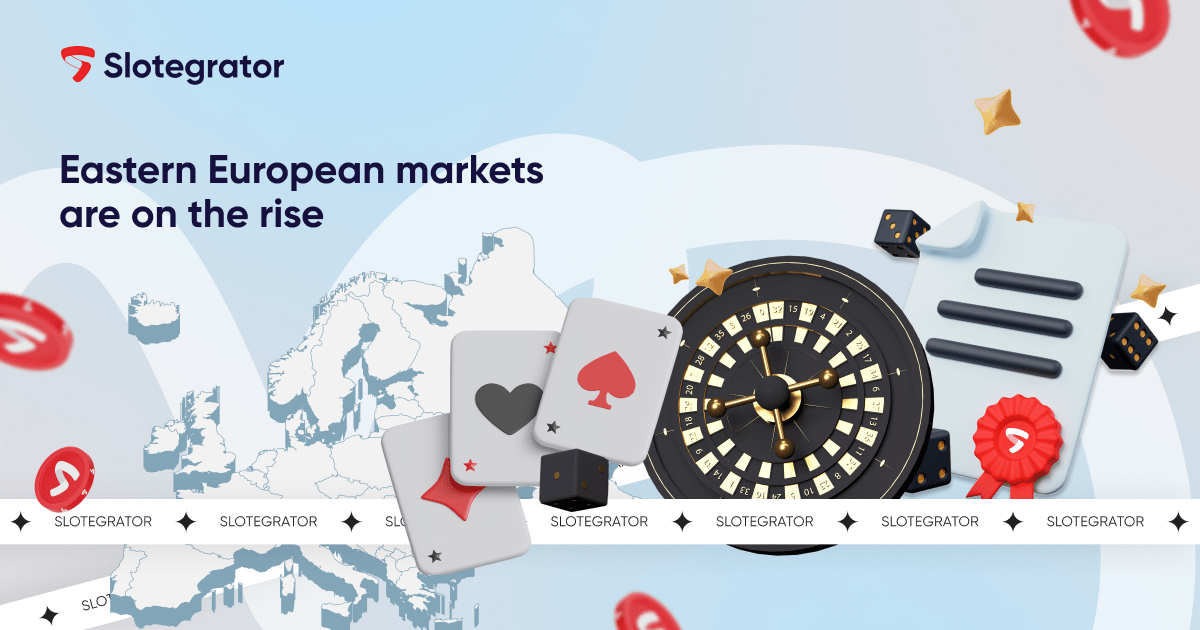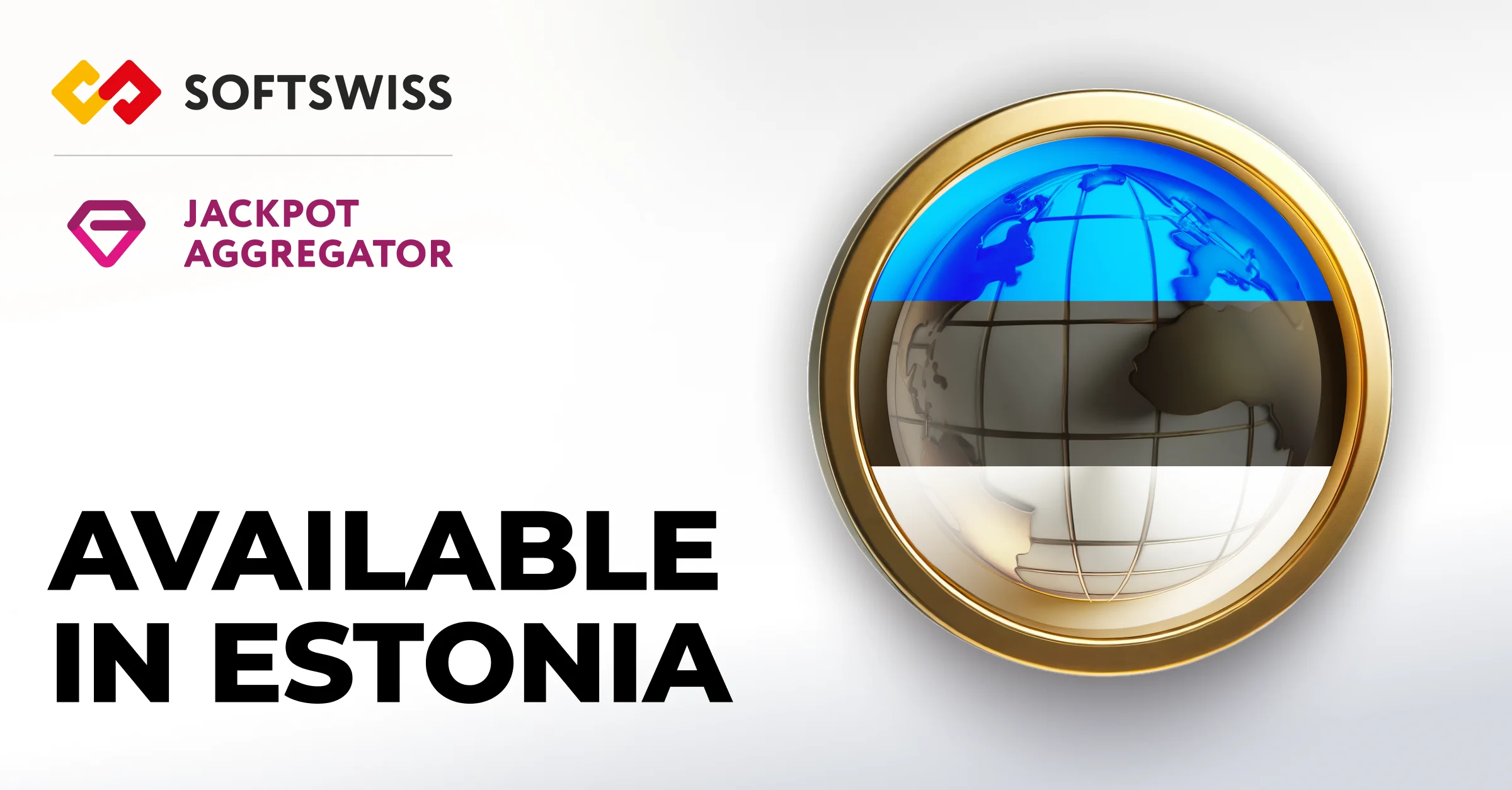Developing markets in Eastern Europe hold great promise for iGaming operators — if they are well-equipped for the challenges they’ll face. Adopting new tech and embracing an omnichannel approach are crucial for making the most of the opportunities presented by Eastern Europe, according to the experts at Slotegrator.
Online gambling markets across Eastern Europe are rapidly developing, presenting a tantalizing opportunity to operators. That growth is coming hand-in-hand with the usual regulatory changes in the areas of responsible gaming, advertising, and anti-money laundering and combating the financing of terrorism, but operators should never be scared off by tightening restrictions. Eastern European markets have plenty to offer those with the right tech and the right approach.
“Eastern European markets are rewriting the playbook for the iGaming industry, emerging as high-growth territories that are too lucrative to overlook. These markets are not just expanding—they’re evolving, driven by a tech-savvy population and regulatory environments that are becoming more investor-friendly,” comments Faruk Aydin, Chief Revenue Officer at Revpanda Group.
“The real game-changer here is the unique blend of local knowledge and adaptability; businesses that understand and cater to the distinct cultural and economic dynamics of the region will find themselves leading the charge in a rapidly maturing market. The region’s appetite for tailored igaming experiences, combined with a sharp focus on localization, has turned it into a traffic magnet that savvy brands can’t afford to ignore. When running your marketing efforts, I’d recommend mastering the art of digital nuance, knowing the local pulse, and riding the wave of rapidly growing demand before someone else does.”
Gambling has long been heavily restricted in Russia, largely confined to designated gambling zones. The biggest recent change was the introduction of new regulations in September 2024 which implemented tighter, more centralized control over the industry, particularly the online sports betting segment. While online sports betting is legal in Russia, online casino players have to turn to VPNs, mirror and proxy sites, and new innovations like Telegram casinos to get the gaming experience they’re looking for.
In Belarus, the casino industry initially developed to cater to visiting Russian players, for whom Minsk was often closer than, for example, the remote Primorsky zone. However, growth has subsided in recent years, due to social and economic conditions in the country, as well as ever-rising taxes.
Since Ukraine lifted its decade-long ban on gambling in 2020, regulator KRAIL has diligently protected the legal domestic market, blocking nearly 3,000 illegal sites in 2024 alone. The Verkhovna Rada (Ukrainian parliament) voted this year to dissolve KRAIL, which had granted 152 licenses in Q1 of 2024, but this doesn’t mean the government is backtracking on the re-regulation; too many members of the body had joined the war effort for it to function at full capacity. Instead oversight will shift to a different body, while authorities continue to focus on responsible gambling measures and protecting the domestic market.
Players have limited options in Moldova. The government monopoly was replaced with a public-private partnership in 2018, but there’s still no room for new operators. However, revenues are healthy enough that the government announced a plan to borrow money from the Moldovan Lottery to pay salary arrears for employees of Moldovan Railways and keep the trains running, providing an example of how useful it can be to regulate the gambling industry.
Bulgaria is a growing market. Projections for 2024 indicate that the Bulgarian gambling industry will generate BGN 200 million (€102.3m/$111.7m) for the national budget in 2024. However, as always, growth can spark pushback; in May, the country’s parliament voted to ban gambling advertising. However, the National Revenue Agency ultimately decided that social media platforms do not fall under the traditional definition of “media,” and are still allowed to promote gambling, meaning you can expect plenty of activity in the affiliate sector. At the same time, though, fees have also jumped up — licenses now cost 3 times what they used to, and income tax has gone from 15% to 20%. The country has also brought its AML and CFT measures in line with European standards, and the NRA created a new AML unit to enforce requirements.
Online gambling revenues in Slovenia are promising, projected to show an annual growth rate (CAGR) of 8.28% between 2023 and 2027, resulting in a projected market volume of €231.60 million by 2027. This year, the online sports betting market is expected to reach a volume of €62.42 million.
Serbia, Slovenia, and Croatia all have one thing in common; players often prefer retail, sometimes even mistrusting online-only brands. In Croatia and Slovenia, only brick-and-mortar licensees can offer online services, so success there might depend on an omnichannel approach. In Serbia, on the other hand, operators are free to apply for online casino licenses, due to legislation passed in 2020. Licensees must be registered in Serbia or elsewhere in the European Economic Area.
And Hungary technically ended its state monopoly on online sports betting last year, allowing private operators in the European Economic Area to accept Hungarian players, though requirements remain strict for online casinos: only online land-based casino licensees can run betting sites. This is a new development, as the previous state monopoly was declared unlawful by the European Union Court in 2017, and the private licensing regime only began in 2023. However, the only license that has been issued so far has been to organization that held the old state monopoly.
What does all this tell us? First, that the time is right for land-based licensees in Central Eastern Europe, including the Balkans (and even looking further afield to CIS countries) to expand online if they haven’t already, to take advantage of growing revenues. Even if today’s players have an affinity for retail, each passing generation moves further and further online. Second, players who already prefer online casinos to their land-based counterparts but live in heavily restricted markets will seek out tech solutions like Telegram casinos.
“Eastern European markets are only getting more exciting,” says Ataur Abeer, senior sales manager at Slotegrator. “Companies who are ready to embrace the nuances and face the challenges of these markets can expect some satisfying results. Our Telegram Casino solution is especially effective for these markets.”
Slotegrator is currently attending SiGMA East Europe in Budapest, Hungary, from 2 to 4 September, demonstrating how its solutions are perfectly suited to Eastern European markets.
ABOUT THE COMPANY
Since 2012, Slotegrator has been one of the iGaming industry’s leading software and business solution providers for online casino and sportsbook operators.
The company’s main focus is software development and support for online casino platforms, as well as the integration of game content and payment systems.
The company works with licensed game developers and offers a vast portfolio of casino content: slots, live casino games, poker, virtual sports, table games, lotteries, casual games, and data feeds for betting.
Slotegrator also provides consulting services in gambling license acquisition and business incorporation.
Read More: Best Gambling Aggregators















